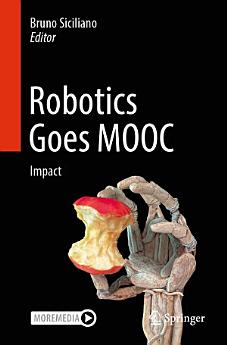Robotics Goes MOOC: Impact
Über dieses E-Book
From the discussion above, it should be clear that in a world populated by humans and robots, issues arise that go beyond engineering and technology due to the impact resulting from the use of robots in various application scenarios. The anthropization of robots cannot ignore the resolution of those ethical, legal, sociological, economic (ELSE) problems that have so far slowed their spread in our society.
The final book of the Robotics Goes MOOC project enlightens the impact of using robotic technology in the main fields of application, namely, industrial robots as in Chapter 1 by Bischoff et al, medical robotics as in Chapter 2 by Dario et al, aerial robots as in Chapter 3 by Ollero et al, orbital robotics as in Chapter 4 by Lampariello, underwater robots in Chapter 5 by Antonelli, and rescue robots as in Chapter 6 by Murphy. The last part is devoted to the open dilemma of using and accepting robots in human co-habited environments which is addressed in Chapter 7 on social robotics by Pandey and the very final chapter by Tamburrini on the important issues raised with roboethics.
Autoren-Profil
Bruno Siciliano is professor of robotics and control at the University of Naples Federico II. He is also Honorary Professor at the University of Óbuda where he holds the Kálmán Chair. His research interests include manipulation and control, human–robot cooperation, and service robotics. Fellow of the scientific societies IEEE, ASME, IFAC, AAIA, he received numerous international prizes and awards, including the recent 2024 IEEE Robotics and Automation Pioneer Award. He was President of the IEEE Robotics and Automation Society from 2008 to 2009. He has delivered more than 150 keynotes and has published more than 300 papers and 7 books. His book “Robotics” is among the most adopted academic texts worldwide, while his edited volume “Springer Handbook of Robotics” received the highest recognition for scientific publishing: the 2008 PROSE Award for Excellence in Physical Sciences & Mathematics. His team has received more than 25 million Euro funding in the last 15 years from competitive European research projects, including two ERC grants.






